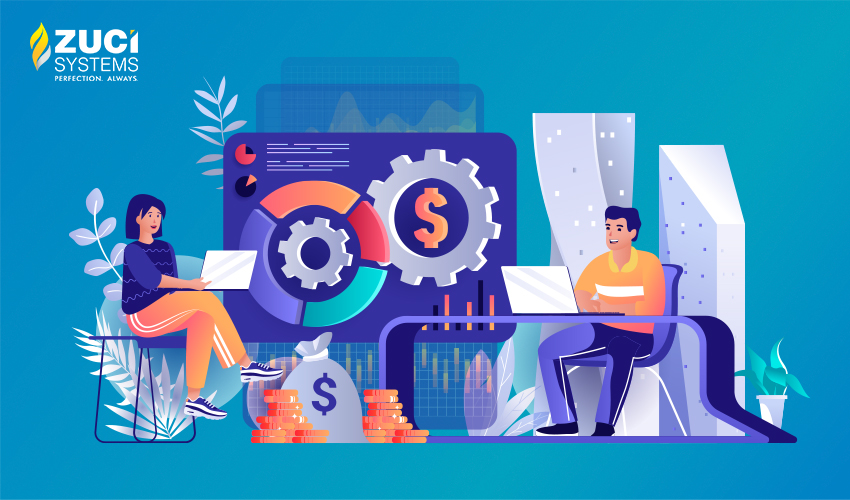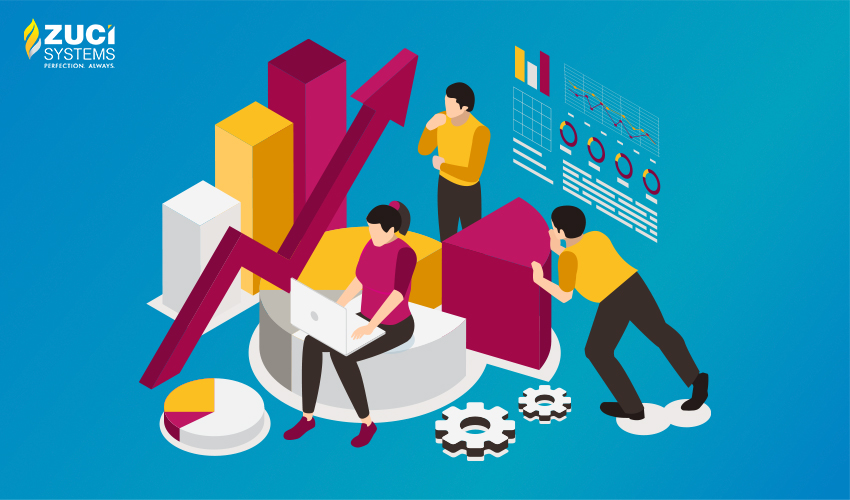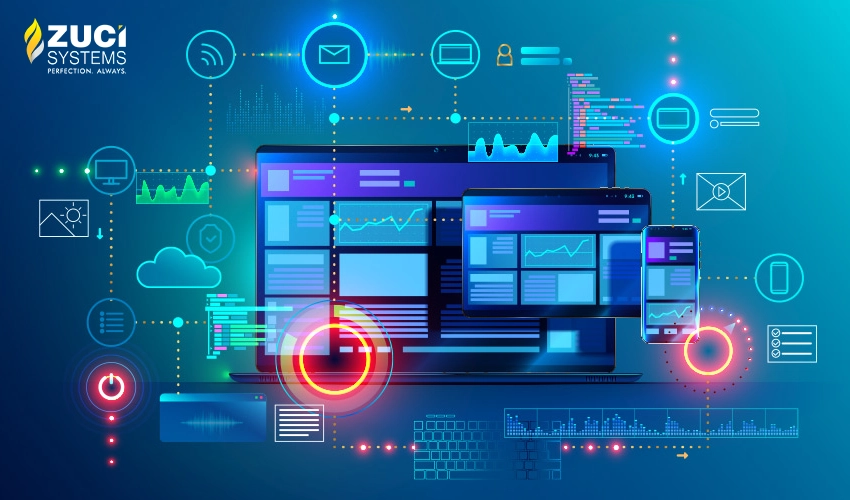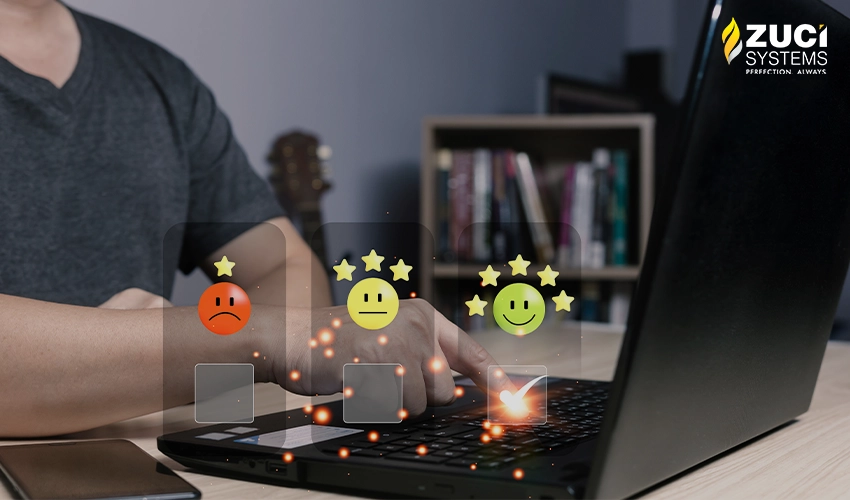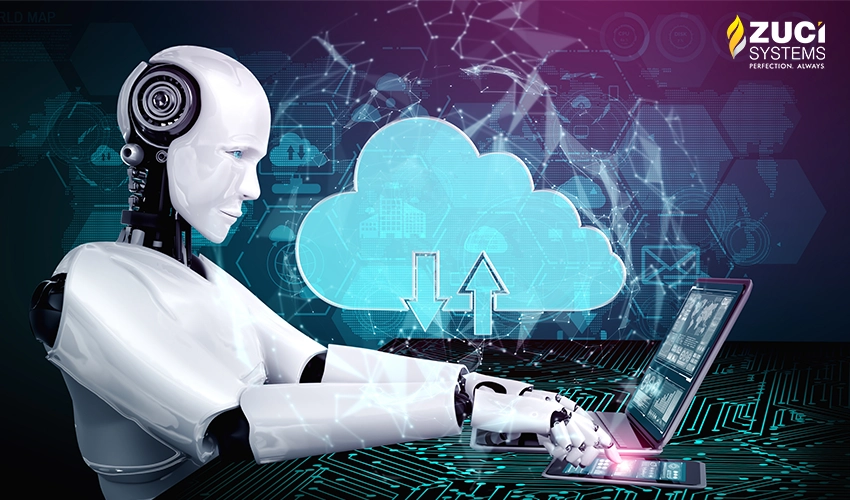Reading Time : 1 Mins
How Machine Learning Is Revolutionizing The Manufacturing Industry?
Chatty & gregarious, you can find her with her baby plants when not with her marketing team.
There is no other industry where everyone obsesses about improving efficiency and cutting costs as much as the manufacturing industry does. Since December 1, 1913, when the moving assembly line was installed in a Ford Motor plant by Henry Ford, the manufacturing industry has been besotted with speed, efficiency, acceleration, and whatnot. It reduced the time taken to build a car from more than 12 hours to around 90 minutes. Imagine!
If the moving assembly line completely revolutionized the way we manufacture, we are seeing a similar phenomenon with artificial intelligence and its subset, machine learning. Experts have termed the rise of an algorithm-led resurgence of the manufacturing sector as Industrial Revolution 4.0.
Machine Learning provides machines the ability to learn and improve without having to be explicitly programmed. It uses the data it captures to find patterns based on which business decisions can be made. Artificial Intelligence in the manufacturing market is expected to reach 16.7 billion USD by 2026 at a CAGR of 57.2% during the forecast period (2020-2026).
Interesting machine learning use cases in the manufacturing industry:
General Electric:
One of the largest manufacturing companies in the world, GE has a suite of systems that track and process everything in their supply chain. It uses an industrial IoT platform called Predix to power its ‘Brilliant Manufacturing Suite’. It leverages sensors to capture data of a machine continuously and monitors them for any problems.
Siemens:
The German-based manufacturing giant’s Mindsphere, is a “smart cloud for industry,” according to them. The machine monitors machine fleets for service purposes across the world. It monitors, records, and analyzes everything in manufacturing.
“Even after experts had done their best to optimize the turbine’s nitrous oxide emissions, our A.I. system was able to reduce emissions by an additional ten to fifteen percent,” said Norbert Gaus, Head of Research in Digitization and Automation at Siemens.
KUKA:
It is a Chinese-owned German manufacturing company and is one of the world’s largest industrial robots manufacturers. KUKA introduced LBR iiwa, the world’s first series-produced HRC-compliant and sensitive robot. It has the ability to work with humans without accidentally causing harm. Since most industrial robots are strong, it was considered a risk for humans to work alongside them.
Schneider Electric:
It uses Microsoft Azure’s Machine Learning platform to monitor and configure the oil pump settings in its manufacturing plants, remotely. If there is any abnormality in temperature and pressure flag, it could mean other potential issues, and if detected on time, it can prevent failure. The ML-system uses regression models, classification models, anomaly models to predict equipment failure.
Continental:
The German-based automotive manufacturer uses an AI and ML-based solution to predict the optimal points at which there needs to be a tyre change on its commercial fleets. It reduces maintenance costs, optimizes stocking of tires, increases up-time, and eliminates uncertainty.
Nokia:
They have launched a video application that monitors assembly lines and alerts if it finds any inconsistencies in the production process. The machine-learning-based video application corrects issues in real-time.
Businesses find ways to optimize their production or operation process to ensure that there is maximum throughput. It is no wonder that businesses are spending massively on ML because of the kind of returns that it fetches for them. Smart manufacturing will be the norm sooner than we can imagine. Well, it is a win-win situation for both the manufacturer and end consumer alike.
Let us see how ML is revolutionizing the manufacturing industry:
1. Accurate Forecasting:
One of the biggest peeves for the manufacturing industry is forecasting the number of products that would be required for a particular period of time. Purchasing too much can lead to extra costs if the demand is less than the available inventory. If a business purchases too little inventory, then the chances of not meeting customer orders can result in lost revenue and reputation. It is a double-edged sword that manufacturing companies are wary of wielding.
Thanks to accurate forecasting by the ML system, the business can start manufacturing the numbers that they need. It will reduce wastage as well as make use of the business’ time efficiently. Machine Learning algorithms analyze a large amount of data to make accurate predictions. It reduces the burden on the logistics side by handling any delays or issues that might happen even before they occur. Since the entire supply chain management is machine and data-driven, every aspect of the business will have little room for error.
With constant changes in public sentiment, predicting demand accurately is almost not possible. It is exactly why businesses usually overspend on the inventory so that they don’t come a cropper by not being able to meet customer demand. With ML, manufacturing businesses can rely on accurate predictions which are based on previous data and facts, instead of depending on instinct. They increase their revenue without having the burden of unused inventory at their warehouses.
2. Better consumer engagement:
Industries have been using machine learning to get significant insights from customer data. Based on this data, manufacturing businesses are making systems that automate customer service. Thanks to natural language processors, the companies are improvising solutions. It can even address questions posed by the customers and respond to them with an accurate solution.
AI and Machine Learning has built an ecosystem to provide a high level of customization to customers/businesses who are looking for such solutions. These technologies use smart manufacturing processes that adapt to the changing needs of customers. Companies can also collect data from smart homes to understand consumer trends so that they can create products accordingly.
3. Physical inspection:
ML excels at visual pattern recognition. Therefore, it has many use-cases in the physical inspection of goods as well as the maintenance of physical assets throughout the entire supply chain network. It has the ability to find patterns in multiple data sets and is a great partner to automate quality inspection. The system even checks for wear and tear, classifies the damage time (IBM’s Watson does this) and even recommends an action plan to make it better.
4. Predicts the life of supply chain assets:
With the help of IoT sensors, which finds patterns in the usage of machinery, engines, warehouse equipment, etc., it accurately predicts how long they will be usable. It even tracks and tells you when there is a lot of wear and tear. In that case, the business will be able to take appropriate action. Thanks to this, businesses can make optimum use of the machines that they use and increase its life with proper maintenance and care.
5. Quality control:
Businesses across the manufacturing industries are betting big money on machine learning-based quality assurance. Companies used to rely on low-tech sensors and computers to remove products that were of less-than-ideal quality. But with ML, the efficiency in removing bad quality products has become even more streamlined and does it throughout the entire manufacturing process.
6. Sensory Perception:
Features like Advanced Emergency Braking System that we see in self-driving vehicles is an example of the ability of AI and ML’s Machine Vision. It is an application that makes the sense of perception in robots, a reality. The system identifies patterns in the images present in the camera and takes appropriate actions. If it needs to steer clear of a tree, then it changes direction to avoid the obstacle. Self-driving forklifts and conveyors that are widely used in factories use the same technology to prevent accidents from happening.
Conclusion:
The impact of AI and ML across the manufacturing world will only increase in the coming years- or should we say, weeks. Because that’s how fast the machine keeps learning. ML heralds a new age for manufacturers by predicting, assuring quality control, reducing costs, increasing throughput, optimizing the entire supply chain, and whatnot. Manufacturing businesses that adopt machine learning technology will become the front-runner leaving behind competitors who take time to pause and reflect over it.
Related Posts











